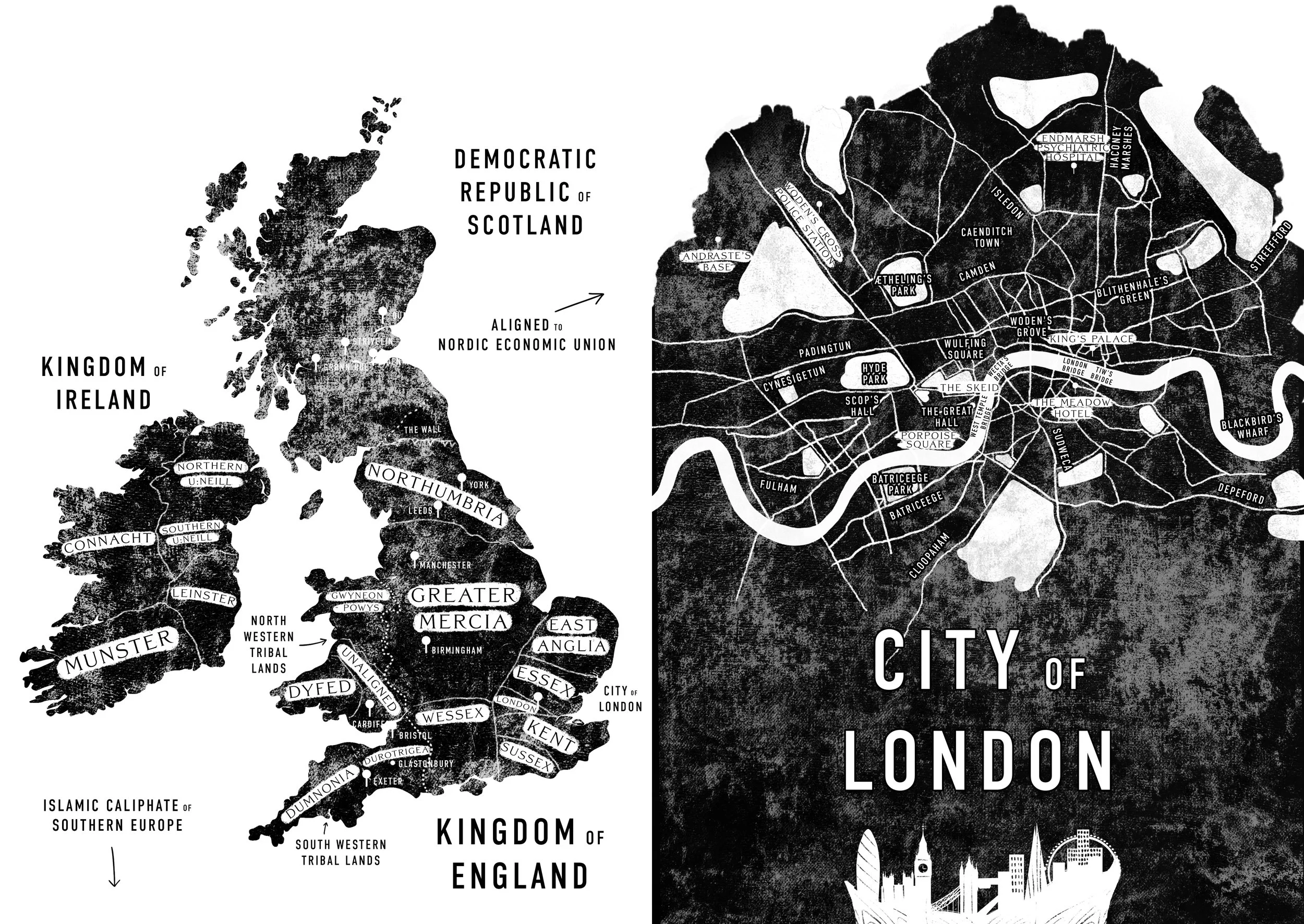Pagans by James Alistair Henry
An extract from
‘You want the case?’ said Aedith, ten minutes later, handing Drustan a coffee. ‘Go right ahead. I could do with my stats lowered.’
Drustan grinned at her. ‘I apologise for raising your hopes. I’m here in an advisory capacity only.’ He took a sip from the paper cup, raised an eyebrow. ‘This is good. Moorish?’
‘The forensics team run on the stuff,’ said Aedith. ‘My family have a few connections with Iberia, so I imported one of the better machines to keep them sweet.’
‘We’re still using ground acorns where I come from,’ said Drustan. ‘Your family being Earl Lod?’ He wasn’t even looking at her.
‘And you pretended you didn’t even know which of us was Detective Captain Mercia,’ chided Aedith gently. ‘No, the Iberian links are on my mother’s side.’
Drustan flicked his gaze back to Aedith. A sideways half-smile, part contrition, part something else. His eyes were very dark. Perhaps, like many Celtic men, he wore a little kohl.
‘The Tribal elders are concerned this death may have been politically motivated,’ said Drustan.
‘Death?’ said Aedith. ‘Polite word for it. We’re working on it being a murder. I don’t know much about Tribal culture, but it doesn’t feel like a sexual adventure gone wrong. Unless it went really wrong quite a long time before it got to the forest.’
‘I concur,’ said Drustan, mildly.
Aedith drained her coffee. ‘Your elders think this diplomat being killed might in some way benefit my father and I was put on the case to cover it up,’ she said. ‘They pulled some strings to get you up to London as quickly as possible to shadow me and make sure I don’t get away with it.’
‘The famed bluntness of the Saxons,’ said Drustan, with a happy sip. ‘You’ll have to excuse me. My people like ambiguities, shades of grey. It always takes me a little while to adjust. In fact, there is no suggestion your father was involved, but I’ve been asked to get in on the ground level, offer my knowledge and contacts within the Celtic community to help the investigation along. And perhaps, yes, so there can be no perception it’s in any way compromised. Your Commander Hengist was surprisingly helpful. He has offered me lodgings and the support of the Saxon police service until such time as this case is closed.’
‘Great,’ said Aedith. ‘Do you want a look at the body before we pull it off the tree?’
‘I’d be very grateful,’ said Drustan, and he sounded like he meant it.
***
‘You know him?’ asked Aedith.
Drustan had been looking at the body for a long time. He shook his head.
‘What about the tattoos? We know the big Tash crime family sigils’ – Aedith hadn’t been able to catch the slur in time and winced – ‘sorry… But we didn’t recognize any of these.’
Drustan seemed to have already moved on. ‘Mostly religious and academic, a few sporting. The man must have liked his hurling. Standard working-to middle-class stuff. Although I can’t make out…’
Drustan pointed to the start of a tattoo on the left side of the man’s chest, above his heart, disappearing under dried blood.
Aedith peered closer. Were those fingers? Forensics were packing up, starting to pull off masks, strip out of their overalls, becoming earthly humans again. She always found it a disappointing sight, somehow.
‘Can we get can something to clean up here?’
One of them passed Aedith a cloth and a bottle of purplish liquid. She dampened the cloth, moved it toward the man’s chest, hesitated at Drustan’s intake of breath.
‘There’s a religious thing?’
He pulled a face. ‘Would be best if the first person to touch the body is of the same tribe. Or close enough.’
Aedith shrugged, handed him the cloth, watched as Drustan sponged the dried blood off the centre of the man’s chest with slow deliberate moves, murmuring something as he did it, although she didn’t catch the words. Wouldn’t have understood them if she had, anyway.
The tattoo Drustan had revealed was the outline of a hand. Plain, simply done, as though someone had tried to push the victim away and left an imprint.
‘I’ve seen this before,’ said Aedith.
The Celt pulled the sponge back as if contaminated. Aedith had seen a similar look on a man’s face once. On one of her first call outs, she’d gone to the aftermath of a religious hate crime: a sacred yew burned down in Cheapside. She’d found the local priest sitting on the pavement amongst the ashes, eyes empty, rocking backwards and forwards, thumbing through a necklace of cowrie shells as the phone in his pocket rang unchecked. It was the expression of a man who had come face to face with blasphemy.
‘He was in the Fomóir,’ said Drustan quietly.
‘Well, shit,’ said Aedith.







